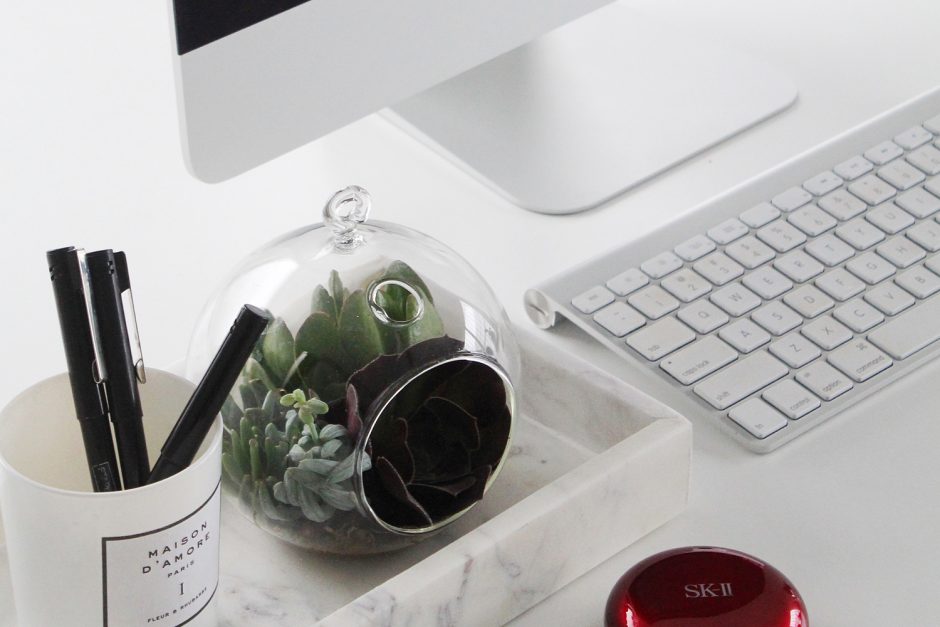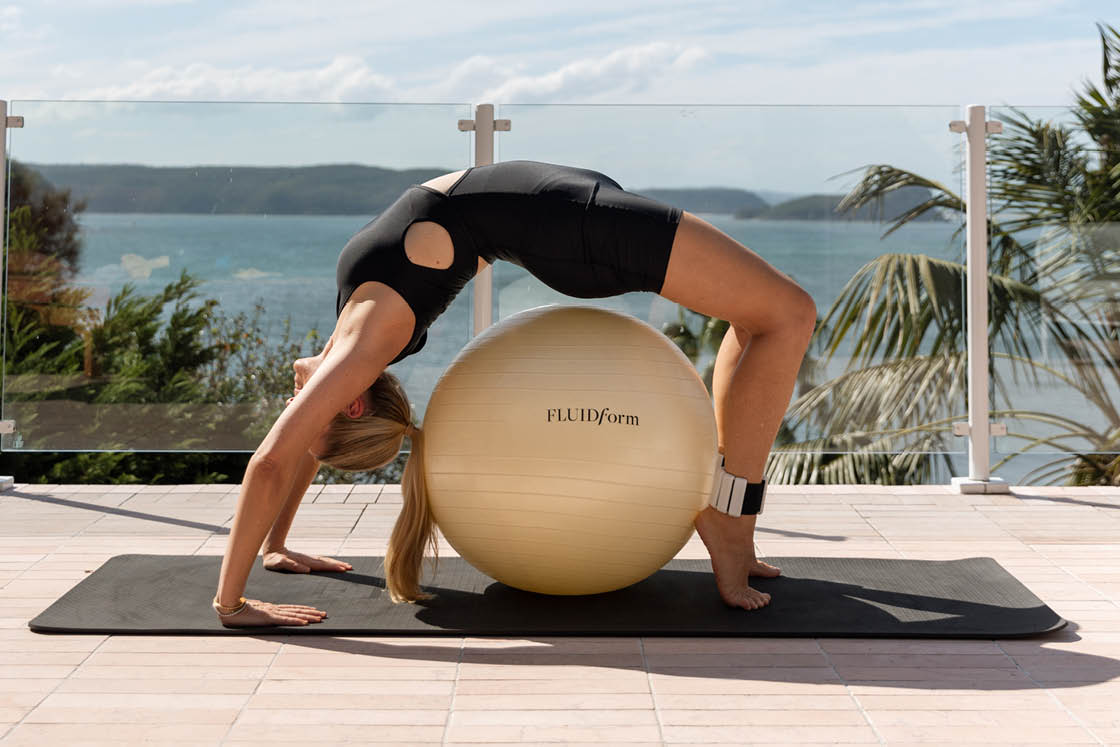How To Stay Sane While Working From Home
Working from home has its perks (sleep-ins, no commute, can work in your comfies) but it can also become quite challenging if you don’t have a game plan.
The unfolding coronavirus (COVID-19) situation means that we are all dealing with a lot of uncertainty and change to our day to day routine. At Gritty Pretty, we want to help you navigate through this time. We’ll be sharing self care advice and tips on how to look after your body and mental health. If there are any topics you want Gritty Pretty to cover, please send us a DM on Instagram.
So, the novelty has worn off. You’re working from home and going slightly mental. If your standard work day involves a vibrant and bustling office, the sudden onset of remote work can feel a little lonely. We can relate. But seeing as this is the new normal (for the time being, at least) we need to make the most of our newfound working and living situation.
Working from home has it pros. It’s great for maximising productivity (no more distracting gossip sessions with Sharon from accounting), integrating a better work/life balance (sans commute) and squeezing in a workout (come on, you have the time). However, all of this requires self-discipline. Without co-workers holding you accountable, it can be difficult to stay on task; now is the time to implement a structure that works for you.
Here, we ask freelance writer (and WFH aficionado!) Hannah-Rose Yee and psychologist Briony Leo for their advice on how to work from home without losing our marbles.
[responsive imageid=’35900′ size1=’0′ size2=’641′ size3=’1024′] [/responsive]
[/responsive]
Set Yourself A WFH Routine
We’re all human and whether we want to admit it or not, we need routine. Starting your day with zero structure is a recipe for disaster. It’s important to plan your day the night before to ensure you go to bed knowing what tomorrow will look like. This means deciding on when your work day will start, finish and allocating time for breaks.
“Approaching the day just like you would a regular working day is useful – so getting up, having a morning routine (exercise, shower, get ready, breakfast),” says Leo. “Structuring your day is psychologically easier than taking it as it comes.”
Leo recommends you take this WFH time to tune into who you are as an employee and learn how to hold yourself accountable.
“Sometimes working from home can actually be more stressful because we need to be our own bosses and can feel anxious and guilty about not being productive,” she says. “It’s important to take the good stuff from office work (e.g. routine) and bring it to the good stuff about being home (e.g. relaxed and quiet work environment).”
Take Proper Breaks
One benefit of working remotely? Not feeling guilty about actually taking a lunch break. When we’re in the office, many of us feel too busy to take a one-hour break and settle for a quick desk lunch. While this set up is never ideal, it might be your standard. However, when you’re at home, proper breaks are imperative. Not only will you be more productive, you’ll actually get to the end of the day in one piece.
Yee recommends making the most of the WFH lunchtime luxury: “Make yourself a lovely working from home lunch. Something that [you] couldn’t make in the office, which means no sad desk salad or crackers and hummus. I’m talking a big rice bowl, or a fancy, zingy sandwich or an intricate bowl of pasta. You can’t make carbonara in a tiny office kitchenette!” Go on, treat yourself to something nice – doctor’s Yee’s orders.
Exercise
Exercise is important at the best of times – but more so now than ever. If you’re working from home, you can squeeze in a 30 minute walk or 45 minute at-home Pilates session. Is your standard commute 30 minutes? One hour? Try dedicating this time to a workout instead.
Journalist Sarah Tarca explored how you exercising can boost your energy levels in our Autumn 2020 issue of Gritty Pretty Magazine. She found that more movement = more productivity.
Leo also recommends putting together a list of everything you do to feel good – be it connecting with those around you, exercising daily, not drinking or smoking too much, planning ahead of time or talking about what is happening. It’s important to incorporate things you love to do into your day to day. Take advantage of your newfound down time.
Give The Phone A Rest…
At times like these, when tension is high, a lot of misinformation can spread online. Our phones are a distraction at the best of times but in the office, we usually have someone holding us accountable if we spend 10 minutes scrolling through Instagram. At home, we do not.
“One key piece of advice is to limit your exposure to media and news websites,” recommends Leo. “Remember, the more frightening and sensationalist the story, the more clicks it will get and the more advertising revenue the site will make.”
Leo also recommends taking part in the pomodoro technique, which encourages you to work in 25 minute blocks and then take a break of your choosing. This can be particularly useful by way of getting work done but will also give you some time and freedom to chill and reset when needed.
…But Don’t Stop Talking To Your Colleagues
While the quiet of home can boost productivity, you don’t it to be too quiet. Staying connected to your colleagues (or friends, if you are freelance) is imperative. Firstly, you need to be across what is happening in your team and secondly, communication helps ward off feelings of loneliness.
“I think the best thing to do if you’re craving human contact is to set up a few phone calls,” recommends Yee. “You can do them when you need a bit of downtime or a break, and they can either be work related or personal (or both).”
If your WFH situation is temporary, Leo also recommends you set up a channel where you can keep in touch with your co-workers’ movements, post memes and generally interact like you might in the office.
Other options could include scheduling a virtual lunch with a friend or co-worker via FaceTime or making sure you video call once a day to touch base and top up your human interactions. During these times of uncertainty, it’s important to keep spirits and staff morale high – connecting in humorous and light-hearted ways with colleagues is very important.
Actually Clock Off
Just as you would when 5:30pm rolls around in the office, switching off from your work day is super important when working from home. When there is a lot going on, it can be easy to get sucked into working 24/7, with no real boundaries.
This isn’t good for anyone.
Working around the clock can lead to deteriorating mental health, resentment and low productivity levels. So, it’s important to choose an end-of-the-work-day time – and stick to it.
“Some strategies for switching off are: having separate laptops for work and personal, going for a walk, or having a shower and changing into pyjamas or comfy clothes at the end of the day,” recommends Leo.
Yee’s switch-off method of choice? A bath.
“I’ve had a bath everyday for the past week at 5:30pm, the second I ‘clock off’. I dump a huge amount of epsom salts in, light a candle and read a book for an hour and it completely shifts any tension I may have felt during the day.”
Without rest and relaxation, the working from home experience can become stressful and feel like a weight. Think: which activities help you wind down the most? It could be cooking dinner, running a bath, a long shower or an episode or two of Love Is Blind on Netflix. These activities are important – don’t brush them off in favour of one more hour of work. Your emails will still be there tomorrow…
Do you work from home regularly and have some important tips to share? Leave us a comment below.
We now have a Facebook group! Here, we share beauty tips, wellness hacks and get to interact with each other (in real time)! Click here to join the Gritty Pretty Gang on Facebook.












Comments